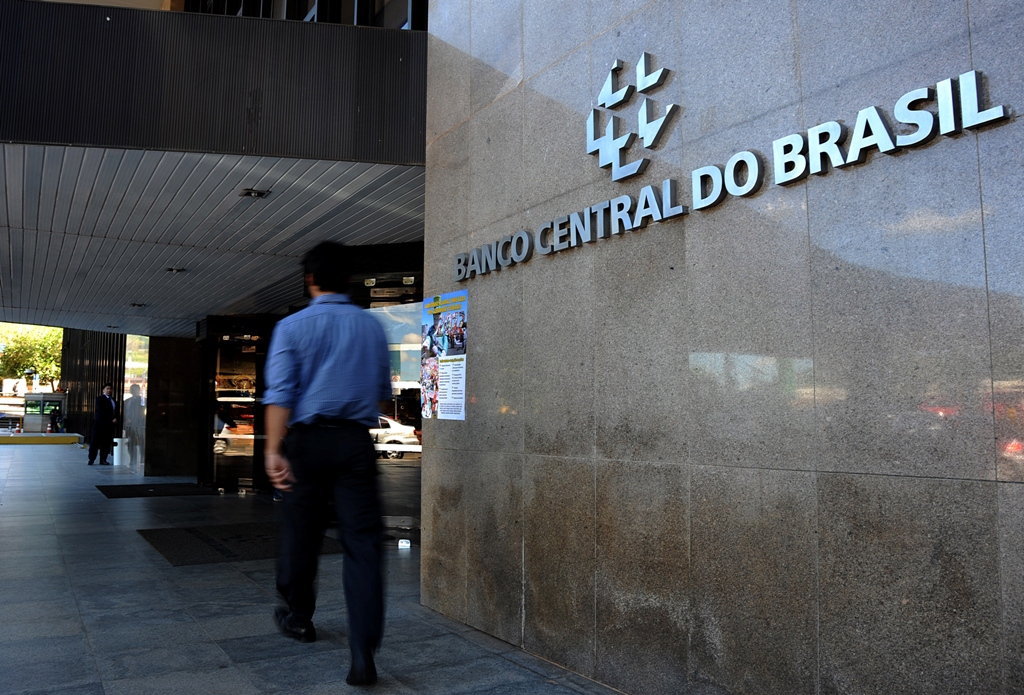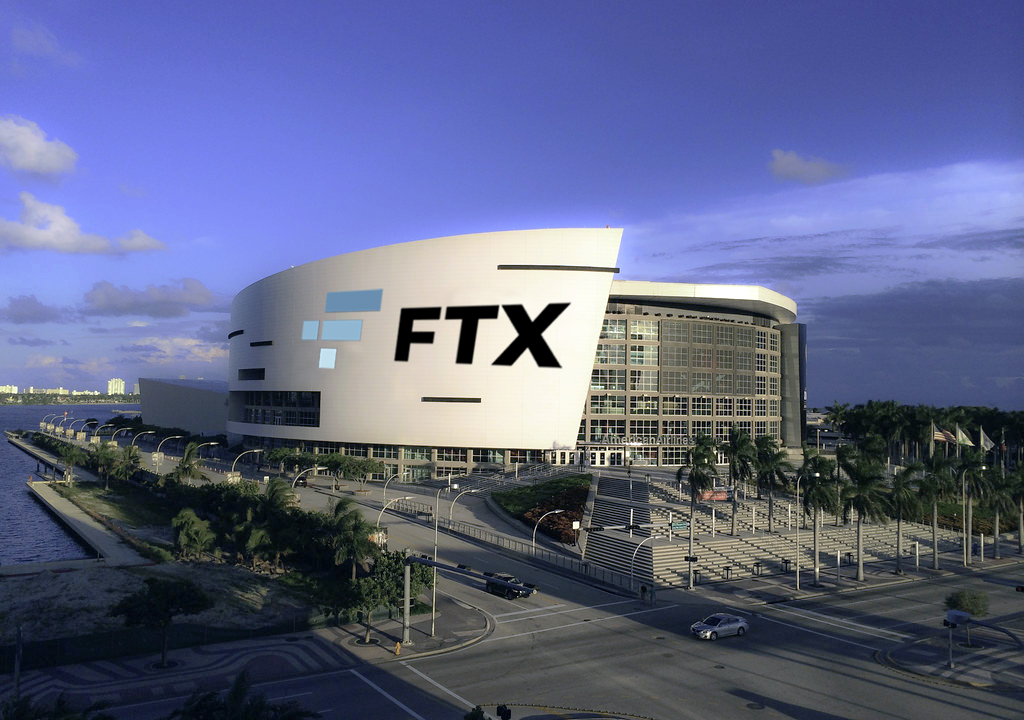MicroStrategy, a software analytics firm based in the United States, recently acquired more Bitcoin (BTC) holdings, triggering mixed reactions from social media.
Company executive chairman Michael Saylor tweeted recently that his business had bought more Bitcoin, with its total holdings reaching 132,500 BTC at $4.03 billion at the time of purchase.
MicroStrategy has increased its #Bitcoin Holdings by ~2,500 #BTC. As of 12/27/22 @MicroStrategy holds ~132,500 bitcoin acquired for ~$4.03 billion at an average price of ~$30,397 per bitcoin. $MSTRhttps://t.co/lcMeULcGQk
— Michael Saylor⚡️ (@saylor) December 28, 2022
Its total holdings plummeted to just $2.1 billion to date, sparking discussions on Twitter.
While some praised him as a “rock star,” others stated Bitcoin backers should not celebrate the extra purchase as it could centralise ownership of the cryptocurrency.
Massive Bitcoin Sale Strategy?
The news comes after a recent sale of its Bitcoin holdings on Thursday, revealing further scrutiny from Bitcoin supporters. In a Yahoo! Finance analysis, the executive cited tax purposes for the sale.
He said at the time: “I think that this is going to be really helpful for Bitcoin because this is an educational moment. And people are realizing the benefits of buying a crypto asset that’s backed by the world’s most powerful computing network and by 10 gigawatts of energy and the difference between that and the 20,000 other cryptos that are, in essence, backed by nothing, and they’re just like other fiat currencies”
According to Yahoo!’s David Hollerith, MicroStrategy had launched a tax loss harvesting strategy by buying Bitcoin and later partially selling it. This allows it to use the losses at the middle selling period to hedge against capital gains taxes for the current fiscal tax year.
Recently, Saylor also stated his firm planned to adopt the Lightning Network in 2023, adding it was searching for software solutions to facilitate the measures.
The Lightning Network is a Layer-2 feature that helps boost Bitcoin capacity and faster transaction rates at scale. Exchanges such as CoinCorner and Bitnob adopted the Lightning Network in mid-December to facilitate cryptocurrency transactions and global remittances for African users.
Fidelity Investments, a major financial firm in the United States, recently filed trademarks for a wave of Web3 offerings such as cryptocurrency, investment, and non-fungible token (NFT) services, it was revealed on social media on Tuesday.
Mike Kondoudis, a licensed trademark attorney for the US Patent Trademark Office (USPTO), tweeted at the time documents detailing the filings.
The new patents focus on technologies linked to the metaverse, the successor to the mobile internet. It will involve several investment services such as mutual funds, retirement funds, financial planning, and others, for people travelling the virtual landscape.
Fidelity Investments could launch payments systems in the Metaverse for paying bills, transferring funds to other users, and “financial administration of credit card accounts in the metaverse and other virtual worlds.”
It could launch cryptocurrency services for asset management, buying, selling, and trading across the Metaverse. This would also facilitate coin holdings in digital wallets.
The filing states: “Electronic wallet services in the nature of electronic storage and processing of virtual currency for electronic payments and transactions via a global computer network; digital currency, virtual currency, cryptocurrency digital token.”
The company currently hosts its Metaverse platform on Decentraland, the world’s largest Metaverse platform. Visitors can soon join its online marketplace to buy and sell digital assets.
Services Portfolio Expansion
To expand on its portfolio of services, Fidelity Investments will provide educational programmes by “conducting classes, workshops, seminars and conferences in the field of investments and in the field of marketing financial services.”
Another filing reads: “Providing business information to financial service providers by means of an internet web site, in the field of business marketing in the metaverse and other virtual worlds; referral services in the field of investment advice and financial planning in the metaverse and other virtual worlds.”
It also plans to incorporate NFTs in its metaverse ambitions. The investment firm stated it may also launch an “online marketplace for buyers and sellers of digital media, namely, non-fungible tokens,” however further details on such are sparse.
Despite the ongoing cryptocurrency and tech bear markets, fuelled by the collapse of FTX and Meta Platform’s metaverse priority shifts, Fidelity will continue to push for a workable platform for its current and future Web3 users.
It also urged in a response letter to US senators to tighten restrictions on cryptocurrency markets. A spokesperson for the financial firm stated it had “always prioritized operational excellence and customer protection.” It added that recent events in the cryptocurrency industry had “underscored the importance of standards and safeguards.”
On its metaverse website, Fidelity stated: “Our presence on Metaverse platforms is a place for you to learn more about personal finance and to access information from Fidelity. While we are pleased to be in the Metaverse, keep in mind that communications in our industry are highly regulated.”
Brazil’s Securities and Exchange Commission (CVM) approved cryptocurrency assets for inclusion in sanctioned investment funds, it was revealed ahead of the Christmas holiday.
The government body allowed investment funds to keep crypto assets on Friday. It explained that it will allow cryptocurrency funds to operate under regulations based on the ownership and integrity of held assets.
#INOVACAO: LAB acelera o debate sobre Criptoativos e Finanças Descentralizadas. Quatro frentes de trabalho estão planejadas e contarão com participação da CVM. Veja no site! 👉https://t.co/sBcXuHtaEf pic.twitter.com/ZQKytcxHX8
— CVM (@cvmgovbr) December 26, 2022
The news comes ahead of a debate among members of the Financial Innovation Laboratory (LAB) on crypto assets and decentralised finance (DeFi).
According to its website, the CVM-linked organisation aims to “promote the study, analysis and development of models and conceptual structures in the Brazilian financial and capital market that use crypto-assets and functionalities and models adopted by Decentralized Finance, preserving investor protection, market efficiency and other objectives of national regulation.”
It also aims to create and develop crypto prototypes for Brazil’s capital markets.
What’s in the New Bill?
The new government regulatory framework, signed into law by former Brazilian president Jair Bolsonaro last Thursday, will determine sets of regulations for crypto assets.
The new bill will provide rules for establishing fraud charges for digital assets, totalling four to six years of jail and monetary penalties.
The bill also requires digital asset companies to apply for licences for designated “virtual service providers.” This also covers exchange and trading intermediaries and determines which digital currencies qualify as legal payment methods in Brazil.
The new law also determines rules for inclusion in investment funds. For example, crypto assets must receive authorisation from the CVM, local supervisory firms, or Brazil’s Central Bank, the Banco Central do Brasil.
All supervisory entities involved must remain legally capable of conducting operations and follow regulatory guidelines, including anti-money laundering and counter-financial terrorism rules.
Market agents must also scrutinise cryptocurrency assets on whether they are securities, as market guidelines have outlined.
Bitcoin enthusiasts have seen the cryptocurrency’s network hash rates recover to normal levels following a massive cold snap across the United States.
Due to the adverse weather, US power grids faced disruptive strains, forcing hash rates to dip temporarily. The country battled sub-zero temperatures, killing more than 28 people.
Bitcoin’s hash rate fell from up to 300 exahashes per second (EH/s) to around 170.60 EH/s on Christmas Day (25 December). It returned the following day to 241.29 EH/s, Blockchain.com data found.
Bitcoin (BTC) mining operations in Texas, where much of the nation’s hash rate takes place, temporarily halted or slowed to help with power shortages.
Bitcoin Capitals of the World
Texas is one of the leading producers of Bitcoin hash rates and is now one of the largest places in the world for Bitcoin mining.
As with many locations, power grid operations must accommodate the huge power consumption rates of BTC mining industries. Locations dependant on such sectors can affect global markets if hash rates slide due to power consumption problems or grid instability.
Data from Sunbird DCIM shows that countries with the largest Bitcoin hash rates include Dalian, China, the Genesis Mining Farm in Reykjavik, Iceland, Moscow, Russia, the GigaWatt Factory in Washington State, US, Linthal, Switzerland, and the Bitfury crypto facility in Amsterdam, Netherlands.
The top four locations produce 360,000 terahertz, 1,000 gigahertz, 38 petahertz, 1.3 petahertz, respectively.
The report also found that 65 percent of all BTC hash rates come from China. Firms such as Beowulf Mining aim to boost crypto mining capacities to 500 megawatts by 2025.
FTX paid lead lawyers from Sullivan & Cromwell LLP more than $12 million USD before filing for Chapter 11 bankruptcy in the US, court filings revealed.
According to reports from Bloomberg Law, the New York City-based law firm used just over $3 million of the total retainer funds to conduct services for the now-bankrupt cryptocurrency exchange platform.
West Realm Shires Services Inc offered the retainer on behalf of FTX to cover the legal services from Sullivan & Cromwell.
The court filings show that the law firm provided services to advise debtors on its Chapter 11 bankruptcy, and liaise with “local and federal governmental authorities and regulators.”
It will also help with investigations on “all potential estate causes of action,” advise sell-offs of the business and facilitate negotiations on the debtor’s behalf.
FTX also paid out $15.5 million to retain services from the firm, data revealed. Currently, the law firm holds $9 million in retainer funds, the court filing added.
Developments on FTX Crisis, Arrests
The news comes after FTX filed for bankruptcy on 11 November after facing a massive liquidity crisis, sparking a bank run on its native FTT token.
Bahamian authorities recently arrested the company’s former chief executive, Sam-Bankman Fried, on the island nation. The ex-CEO was released on $250 million bail, secured with home equity from his parent’s Palo Alto, California house.
Courts have ordered the disgraced former executive to remain under house arrest with monitoring equipment as he awaits trial for mismanagement of funds and other offences.
Binance, the world’s largest cryptocurrency exchange platform, has hit back at critics it claims have spread fear, uncertainty, and doubt (FUD) over its operations in a recent blog post.
In the post, it addressed seven key issues as it remains under severe scrutiny due to what it states are accusers that would like to see the exchange fail.
It aimed to firstly explain concerns over the stablecoin USD Coin (USDC), which was suspended earlier in December. A spokesperson from Binance said it wanted to consolidate all stablecoins to the ones with the most liquidity, including its native Binance USD (BUSD).
It also responded to claims it did not have sufficient liquidity to allow users to continue withdrawals.
According to the Chinese firm, Binance kept sufficient reserves between 12 and 14 December, with net withdrawals topping $6 billion at the time.
In a subsequent audit, CryptoQuant later confirmed Binance reserves were roughly 99 percent accurate. The latter confirmed it had entered talks with firms to provide services to verify reserves, adding that the world’s Big Four—Deloitte, KPMG, Ernst and Young (EY), and PricewaterhouseCoopers (PwC)–could not properly audit encrypted company reserves.
According to Binance’s fourth counterpoint, it addressed why it provided just Bitcoin (BTC) verification, stating it “takes the most cautious attitude towards” work involving user assets.
Due to the massive number of currencies, volumes, teams, and reserves needed to conduct verification processes, it needed to carefully conduct such verifications. The company added it did not have to disclose financial information as it was a private firm.
It also added: “Binance does not need to disclose detailed financial status for two reasons: First, listed companies must disclose company financial details to their investors, but Binance is a private company, not a listed company; second, Binance is financially healthy [and] self-sufficient, [has] no external financing needs and external investors, and no intention to go public at this stage.”
Citing a Reuters report, it stated in its sixth counterargument that mainstream media sources stated “ambiguities” and accused readers of only seeing “eye-catching headlines.”
It assured that it had the world’s largest number of approvals and licences, and aimed to tackle crime, responding to over 47,000 requests from law enforcement agencies since last year.
2 “FTX was killed by xyz (ie, a 3rd party)”
— CZ 🔶 Binance (@cz_binance) December 6, 2022
No, FTX killed themselves (and their users) because they stole billions of dollars of user funds. Period.
Concluding, Binance hit back at firms claiming it had “destroyed FTX,” stating the latter had “destroyed itself” due to misappropriation of user assets, citing a 6 December tweet from company chief executive Changpeng Zhao (CZ).
It said: Binance will not regard other exchanges as ‘competitors’. The current industry touches less than 6% of the population. We are more focused on continuously promoting and expanding industry adoption. We also hope to see more exchanges, blockchain, Wallet, etc. coexist in this ecosystem, so that more people can enter the field of blockchain cryptocurrency, without spending time and resources on any unhealthy ‘competition’ within the existing scope.”
A key United States Securities and Exchange Commission (SEC) official has cautioned investors to avoid fully trusting claims of proof-of-reserves (PoR) from global centralised crypto firms.
Paul Munter, SEC acting chief accountant, said in a Wall Street Journal interview that investors should remain “very wary of some of the claims that are being made by crypto companies.”
Munter added ongoing audits did not indicate companies were in a sound financial position, stating, “Investors should not place too much confidence in the mere fact a company says it’s got a proof-of-reserves from an audit firm.”
He continued that PoR lacked sufficient information to allow stakeholders to determine if companies held enough assets to cover liabilities.
The news comes as numerous crypto companies, including Binance, Crypto.com, and Kraken, among others, have offered to show customers their PoR data amid the ongoing FTX collapse.
The measures aim to ease fears of further bankruptcies and ensure customers of financial liquidity.
Crypto! From @SECGov Acting Chief Accountant Paul Munter. "Every time I think I've gotten my arms around the latest crypto structure, staff comes in and explains a new one to me that makes my head spin." #AICPASEC
— Nicola M. White (@nicola_m_white) December 12, 2022
The news comes after Munster voiced concerns over cryptocurrency platforms at a recent conference in the US Capitol in mid-December.
In the subsequent WSJ article, he stated that, should the SEC find additional patterns in the industry, it could escalate matters with law enforcement agencies.
Binance’s “proof of reserve” report doesn’t address effectiveness of internal financial controls, doesn’t express an opinion or assurance conclusion and doesn’t vouch for the numbers. I worked at SEC Enforcement for 18+ yrs. This is how I define “red flag. https://t.co/6oEqmArjS9
— John Reed Stark (@JohnReedStark) December 11, 2022
Earlier claims from former SEC Internet Enforcement chief John Reed Stark accused Binance of failing to address internal financial controls over its proof-of-reserves.
The news comes after three key crypto exchanges—Celsius, Three Capital Arrows, and FTX—have filed for administration in their respective markets over severe liquidity crunches triggering bank runs, among other problems.
Bankrupt cryptocurrency exchange platform FTX has requested judges in the United States to block crypto lending enterprise BlockFi from receiving $450 million in Robinhood shares.
BlockFi recently took legal action against the disgraced exec’s holding firm, Emergent Fidelity Technologies, where Sam Bankman-Fried, FTX’s former chief executive, holds the purchased shares.
The lawsuit demands that the holding firm release 56 million Robinhood Markets shares recently designated as collateral for BlockFi’s bailout loans to Alameda Research.
FTX and Alameda Research filed for Chapter 11 bankruptcy on 11 November prior to resolving loans with BlockFi. The bankruptcy companies later argued its case in a court filing alleging laws protected it from debt collections.
The filing read: “In the alternative, if the Court were to determine that Alameda has failed to show that the Shares arguably are property of the bankruptcy estate, the Court should exercise its discretion to extend the automatic stay to Emergent and EDFM (the nondebtor defendants named in the BlockFi Adversary Proceeding), and ensure that all creditors—including BlockFi and the others—can participate in an orderly claims process before this Court.”
In the filing, FTX claimed that Alameda Research owned the shares and that FTX-linked firms would keep shares during ongoing investigations to resolve ownership claims.
Parties claiming ownership of the shares include FTX creditor Yonathan Ben Shimon, Sam Bankman-Fried, and BlockFi. Currently, Bankman-Fried has only $100,000 in his bank account ahead of his release while on $250 million USD bail conditions, secured by his parents’ house equity.
As some people face account lock-outs from their banks, some have turned to Bitcoin and other cryptocurrencies to receive their salaries.
One such Bitcoin enthusiast, SVN, received his entire salary in Bitcoin for 2022, paid in fortnightly instalments.
In a Twitter thread, he stated that he used Coinbase’s direct deposit method, then migrated to Bitwage, Cash App, where his company paid him directly in cryptocurrency.
Took my entire salary in #Bitcoin this year. 100% net wage paid bi-weekly.
— svn ⚡️ (@rarepassenger) December 20, 2022
Started off with Coinbase direct deposit, migrated to Bitwage, Cash App, then got the company to pay me directly.
He stated direct deposit services were “simple and straightforward” from then.
He said: “Payment would go direct to wallet. Would send a % straight to cold storage for saving, the rest would use as needed.”
Explaining further, he stated the benefits of receiving his yearly wage in Bitcoin was that “accountants didn’t need to know [Bitcoin]” and that tax reporting was “easy.”
Conversely, he stated Know Your Customer (KYC) coins were a challenge.
Continuing, he said: “Getting the company to pay direct was a better experience. Because I was taking 100% net every other week, it required the business to change strategies for accumulation and earning.”
On the positive, he did not have to use KYC and was paid directly to his wallet. Despite this, he faced an “accounting nightmare.”
Getting the company to pay direct was a better experience. Because I was taking 100% net every other week, it required the business to change strategies for accumulation and earning.
— svn ⚡️ (@rarepassenger) December 20, 2022
Benefits:
Non-KYC coin
Direct to wallet
Cons:
Accounting nightmare
SVN added that obstacles to receiving his coins were transition tracking, with several wallets such as Sparrow Wallet and Mobile LN wallets offering separate transaction record-keeping.
Concluding, he wrapped up his analysis of a year’s worth of Bitcoin salaries, stating,
“Anyway, a whole year of accepting #BTC as pay has been interesting. Some days there’s a gain, some days a loss, other days neutral. It makes you take care of responsibilities faster, purchases are more considerable during drops and builds time horizon. Savings increases too.”
Anyway, a whole year of accepting #BTC as pay has been interesting.
— svn ⚡️ (@rarepassenger) December 20, 2022
Some days there’s a gain, some days a loss, other days neutral.
It makes you take care of responsibilities faster, purchases are more considerable during drops and builds time horizon. Savings increases too.
He added he would do things differently such as using less “off-ramps” or avoid automatic clearing house (ACH) payments, which conduct transactions between banks and credit unions.
Finally, he recommended using stablecoins more than other cryptocurrencies.
He concluded: “Haven’t had ANY banking issues considering I don’t have a bank account anymore. Would I go back? No. I really love the freedom having custody of my [hard-earned] funds feels.”
Ex-Alameda Research chief executive Caroline Ellison has reached a plea agreement with US authorities, allowing her to escape prosecution for seven charges. This would leave her with just charges of tax violations with immediate release on $250,000 bail.
Ellison struck a deal with the United States Attorney for the Southern District of New York, a document published on Wednesday revealed. The deal noted that Ellison would avoid most of the biggest charges totalling up to 110 years in prison.
Charges levied against Ellison include two counts of wire fraud, conspiring to commit wire fraud and one count of commodities fraud. She also received one count of conspiracy to commit securities fraud against equity investors and a final count of conspiracy to commit money laundering.
In exchange for dropping the largest charges against the former exec, she must fully disclose all information, documents, and other requested data to prosecutors. Despite the plea deal, she may still face charges from authorities in other affected countries.
Along with the $250,000 bond, authorities have required Ellison to surrender her passport, travel documents, and right to leave the US.
FTX Scandal Continues
Sam Bankman-Fried, the disgraced former chief executive for FTX, has been extradited to the US and is heading to the Southern District of New York to stand trial for his crimes.
Bankman-Fried, Ellison, and other executives will face charges of monetary malfeasance over their roles in the collapse of the now-bankrupt crypto exchange platform. FTX filed for Chapter 11 bankruptcy on 11 November after facing a massive bank run on its native token, FTT.
This triggered a huge liquidity crisis and subsequent collapse, triggering market volatility and tightening regulations across multiple countries.












